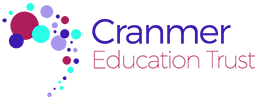
school improvement
The core responsibility of the trust is to ensure that all our children and young people have the best possible education that enables them to develop the knowledge and skills to achieve, to progress, and to grow into confident, fulfilled, responsible and successful adults, who can experience life in all its fullness, and who will do good as they go.
How we do this?
We are one trust, one family. We collaborate. The whole point of being a member of a trust is that we are bringing together energy, experience, knowledge and insight in the interest of all our children and young people. We strategize together, we learn from each other, we have common systems for school improvement and we share a core programme of CPD, in addition to the provision made by schools, which builds a common language and shared understanding of pedagogy. We invest in our people, ensuring they have agency and ownership, because this encourages creativity and sustainability. They are our future. We build capacity to push the boundaries of professional practice and achieve improvement across our trust schools and beyond.
Curriculum
We do not have a single standardised curriculum. Our schools operate in different contexts, serving different communities with different needs. We have shared principles and values for the curriculum, which our schools reflect in the provision they make for their pupils.
Our school curricula are:
Ambitious for all; there is no ceiling to pupils’ aspirations or experiences.
Broad – so that our young people gain knowledge and understanding of the range of ways in which human beings have understood and found meaning in our world – the best that has been thought, said and created.
Deep – so that our pupils develop and gain experience, they understand the concepts that provide the structures and connections for human beings, search for meaning and its complexity.
Rich – so that all our young people can widen their horizons, develop creativity, have life experiences, and increase cultural capital.
Interconnected – so that our pupils are able to see links and connections within and across learning, can synthesize new information, can tackle complex questions from a range of perspectives, and so that they understand that knowledge evolves, changes, is congested and dynamic.
Progressive – learning builds on prior experience, gradually deepening understanding and mastery.
Relevant – so that our young people are prepared for the next stage of their education and for life in modern Britain as good neighbours and citizens; are ethically and morally grounded; are respectful of others and diversity, compassionate and generous of spirit and able to lead, build community and do good as they go.
Social, moral, spiritual and cultural development (SMSC) is the golden thread running through all aspects of provision.
Great education cannot happen without great teaching. Great teaching needs investment in the best professional development of teachers. Intentional knowledge building is essential for sustainable improvement.
How do we intentionally build knowledge for continuous school improvement?
The Cranmer Institute (CI) leads our central CPD resource. It provides a core curriculum of training for all staff new to the trust, to build a shared understanding and language of teaching and pedagogy which leaders build on in their schools in line with their priorities. The CI draws on the expertise of staff from across the trust, both to share best practice and to model next practice to leverage improvement.
East Manchester Teaching School Hub
The Cranmer Education Trust runs the TS Hub for Oldham and Tameside, which also draws in schools from Rochdale, Calderdale, Manchester and Stockport. Teachers in the Cranmer Education Trust have direct access to the Early Career Framework and all the new National Professional Qualifications, and the opportunity to work at system level, with colleagues across the trust and our local and regional partnerships and networks, as mentors and facilitators within the different programmes. Senior staff are quality assurers for the Appropriate Body which makes the final decision that ECTs have met Teachers’ Standards. This wider experience of system working further builds capacity in schools and helps retain our teachers.
Manchester Nexus School-Centred Initial Teacher Training
Nexus trains 70+ teachers per year and is growing. We offer Early Years to 7, Primary, and 11-16, with extension into 16-18. This is a crucial pipeline of talented new teachers for our schools and an additional opportunity for experienced teachers to mentor ITTs, and deepen their understanding of both curriculum and pedagogy, which again feeds back into school and trust capacity.
The School Improvement Cycle and Support
School improvement sits in schools. It is driven by the schools’ needs and priorities, and by school leadership.
All our schools follow an annual cycle of school improvement:
External SIP
All our schools have an independent, external, expert School Improvement Partner to advise and quality assure. S/he is in school for a minimum of 4 days per year, working with leadership to set priorities and evaluate progress. S/he will advise on the Headteacher’s performance management.
CEO and Head of School Improvement Support
All our schools are supported by the CEO and the Head of School Improvement. The Head of School Improvement works with the Headteacher and the School Improvement Partner on the priorities and provides directly or brokers additional support from within the trust or the wider network of the Hub.
Peer Support and Review
Our Headteachers and Senior Leaders consult and support one another, e.g. in:
- The appointment of staff, especially at senior and specialist middle leadership level.
- Moderation and quality assurance.
- Working together to develop next practice, e.g. online learning, the primary curriculum post-lockdown.
- Developing shared structures which plan in detail the balance of curriculum elements and the order in which we teach it, e.g. our primaries have developed maths mastery, using Maths No Problem, which we interpreted and contextualised to ensure both deep learning and building the fluency needed for KS2.
Our primaries also developed a strategy for writing based on that developed by a very successful school in Bolton. This has evolved in implementation in the different schools. We are now starting to systemise what we have learned about the teaching of writing to create a framework for future use.
- We have collaborated cross-phase to support curriculum and pedagogy in science, art and technology in our primaries and understanding literacy developments and phonics in our secondaries.
- Subject leadership is developing in our primaries as we bring together the curriculum content, planning, sequencing and how that is managed to support our staff who are taking on these new responsibilities.
- As we grow as a trust, we envisage that more leaders will work at a trust level, in peer review, bringing their knowledge and expertise to support colleagues.
- As schools join our trust, we want to learn from them.
External Review
The Cranmer Education Trust commissions external reviews of areas where we need independent evaluation and benchmarking. These include reviews of SEND, Pupil Premium, Safeguarding, Health and Safety, Early Years. Every school has an external review in the year before its Ofsted inspection is expected.
The Balance of Support
Working with others. There are times when schools need more support because circumstances have made them more vulnerable, e.g. when the Headteacher changes, if there is a big turnover of staff, if evaluation surfaces areas of weakness, if attainment and progress are flagging, if the school is RI, then the school needs more support and gets it, through all the means listed above.
Casting your bread across the waters. When schools are motoring, the children’s learning and achievement is strong, the staffing is stable, evaluation surfaces nothing that we didn’t know and already have a clear plan for, then the school needs very little additional support. But the point of a trust – a family – is that we help each other. We are professionally generous, and share, through central CPD provision and by mentoring and coaching others. A new Head of Department or Key Stage Lead will learn hugely from a successful counterpart who can guide them through the processes and systems needed and model what it looks like. Thinking the process through to help someone else means that we review and question what we do, which means we learn more and improve. It is part of our culture that every school casts its bread upon the waters, knowing that it will come back – buttered.
Targets
The Cranmer Education Trust sets targets with each school for each of the key benchmarks – GLD, Phonics, KS1, KS2, KS4, KS5. It is important for the children that we are ambitious for everyone, and whilst good education is far more than attainment, attainment is crucial for successful progression. We serve areas of high disadvantage and we commit as a trust to social justice. If we want social justice for our pupils, we must ensure that they achieve. Quantitative data for each stage is also an essential tool for self-evaluation and improvement planning. It pinpoints quickly where the challenges are.
In our primary schools we are aiming for a minimum of attainment in line with national standards by KS2. Where schools’ intake historically exceeds national averages in Early Years, the minimum expectation is raised. We serve areas of high disadvantage and many of our pupils are not at national average when they start in Early Years. We know that we have a lot to make up across Reception and KS1, so that pupils can progress to national levels in KS2. Where pupils come in at higher than national, getting the strong grounding in place in KS1 means that they can fly in KS2.
Cohorts differ and pupils with EHCPs and significant barriers to learning may make the achievement of national averages impossible and the steps for these children might be much smaller. We adjust for all these variables – and set ourselves high expectations.
In our secondary schools we set targets as follows: the KS2 profile of each subject cohort is run through national KS2-4 progress models. This is a combination of subject specific DfE KS2-4 transition matrices to understand the absolute minimum expectation to meet national standards, and Fischer Family Trust 20 transition matrices to establish a grade profile that puts each subject in the top 20% nationally for progress.
These provisional grade profiles are checked using DfE KS2-4 Value Added models and the SISRA Subject Performance Index (SPI) model to ensure challenge, and the target profile will allow the subject cohort to make progress in line with school expectations. Target profiles are then converted to targets for pupils by the school. We also build in each subject’s KS3 assessment data and a student’s KS2 profile. Using KS3 data allows targets to be more subject-specific than targets set solely on KS2 Reading and Maths would allow, particularly in creative subjects. Pupils progress at different rates and some pupils really accelerate in KS3, so we would not want to base their targets solely on KS2. If pupils have made below average progress at KS3, using the KS2 student profile ensures an expectation of progress at least in line with peers nationally.
Our schools are encouraged to be aspirational for groups who traditionally underperform nationally, to ensure that gaps in expectation are not built into the school’s targets. Where gaps in performance have appeared at KS3, KS4 targets look to close those gaps. Once targets have been provisionally allocated to pupils, targets from all subjects are scrutinised to ensure expectations are high for all groups, using SISRA analytics to check Value Added and SPI scores for different groups.
This review of targets ensures that expected progress measures are high and in line with school expectations for all subjects and all pupil groups (e.g. Disadvantaged, SEN, Gender, High/Middle/Low KS2). The review also checks overall school targets to ensure that the targets set for individual students produce whole school performance targets for progress (e.g. Progress 8 and EBacc Value Added) and threshold measures (%9-5 E&M, EBacc % etc)

